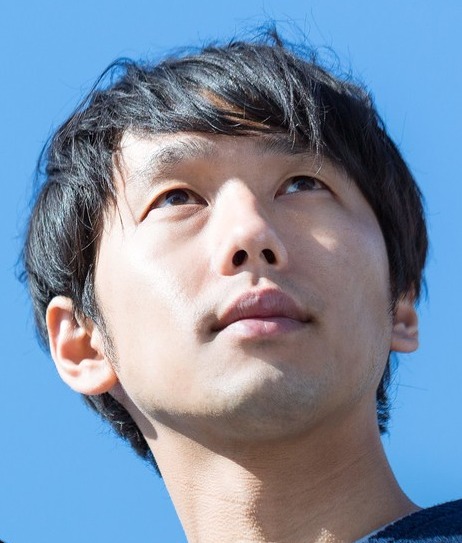“mirai” vs. “shourai” : What’s The Difference? With 10 Examples
What is the difference between “未来 (mirai)” and “将来 (shourai)“? Some leaners think 将来 is used for people and 未来 is used for things, however, it’s wrong. We use 未来 for people as well. These are one of the complicated words for Japanese learners, however, don’t worry about it. It’s going to be clear after reading this. Let me introduce how to correctly use 未来 and 将来 today and just try to use these when you have opportunities to talk with native speakers!
未来 (mirai)
Future (Distant Future)Very / A lot / So (than I thought)
“未来 (mirai)” means “DISTANT Future”, unlike “将来” which means “NEAR future”. So although you could say “近い将来(near future)”, “近い未来(near distant? future)” is wrong because “未来” is not used as the meaning of “near(近い)”. Whereas although you could say “遠い未来(distant future)”, “遠い将来(distant near? future)” is wrong because “将来” is not used as the meaning of “DISTANCE(遠い)”. Furthermore, “未来” has been used in unrealistic situations because again “未来” means “DISTANT future” that we can’t clearly imagine, can we? We think about the time of “未来” that is from 50, 60 years to infinite such as 1,000 years later, 1,000,000,000 years later, etc which means that “未来” is not used as the meaning 2, 3 or 7, 8 years later(near future).
\ Learn Japanese with a personal native teacher!/
Sample
今から1万年先の未来に地球はあるのかな? (I’m wondering if the earth exists the future after ten thousand years from now.) (从现在开始一万年后地球还会存在吗?) (지금부터 1만 년 뒤 미래에 지구는 존재할까?) (Tương lai 10 nghìn năm sau không biết Trái Đất có còn không ha?) (ima kara ichi man nen saki nomirai ni chikyū wa aru no ka na?)


未来はどうなるか誰にもわからないよ。 (Nobody knows the future.) (没有人知道未来会是什么样子。) (미래는 어떻게 될지 아무도 몰라.) (Không ai có thể biết tương lai sẽ ra sao đâu.) (mirai wa dō naru ka darenimo wakaranai yo.)


今の行動が未来を作るんだって。 (I’ve heard the future is made from my present actions.) (现在的行动创造未来。) (지금의 행동이 미래를 만든대.) (Người ta nói rằng hành động của hiện tại sẽ tạo nên tương lai đấy.) (ima no kōdō gamirai wo tsukuru n datte.)


未来の自分から現在の自分に宛てた手紙を書いてみて。 (Write a letter from your future self to your present self.) (未来的自己试着写一封信给现在的自己。) (미래의 자신이 현재의 자신에게 보내는 편지를 써 봐.) (Thử viết một bức thư từ bản thân trong trong tương lai cho mình ở hiện tại đi.) (mirai no jibun kara genzai no jibun ni ateta tegami wo kaite mite.)


未来の自分をみたい。 (I wanna see my future self.) (好想看看未来的自己啊。) (미래의 나를 보고 싶어.) (Thật muốn thấy bản thân trong tương lai quá.) (mirai no jibun wo mitai.)
将来 (shourai)
Future (Near Future / Foreseeable Future)
“将来 (shourai)” means “Near Future or Foreseeable Future” that I mentioned earlier and we think about the time of “将来” that is from 0 to around 30 years. Kids sometimes talk about their future such as “I want to be a ___”. In this case, “将来” is used such as “私は将来医者になりたい。(I want to be a doctor in the future.)” which is correct and “私は未来医者になりたい。(I want to be a doctor in the future.)” is wrong. Because “将来” refers to the year which is from 0 to around 30 years.
Sample


将来の夢は? (What is your dream?) (你未来的梦想是什么?) (장래희망이 뭐야?) (Ước mơ tương lai của cậu là gì?) (shōrai no yume wa?)


将来の夢はプログラマーになることだよ。 (My dream is to be a programmer in the future.) (未来的梦想是成为一名程序员。) (장래희망은 프로그래머가 되는 거야.) (Tớ muốn tương lai trở thành lập trình viên.) (shōrai no yume wa puroguramā ni naru koto dayo.)


将来日本で働きたいから、日本語を勉強してるの。 (I’ve been learning Japanese so that in the future, I wanna work in Japan.) (我希望将来在日本工作,所以我正在学习日语。) (나중에 일본에서 일하고 싶어서 일본어를 공부 중이야.) (Tương lai tớ muốn được làm việc ở Nhật nên giờ đang học tiếng Nhật.) (shōrai Nihon de hatarakitai kara, nihongo wo benkyō shi teru no.)


将来オーストラリアに住みたいなー。 (I wanna live in Australia In the future.) (我希望将来能住在澳大利亚。) (미래엔 호주에 살고 싶다.) (Tương lai tớ muốn sống ở Úc quá.) (shōrai ōsutoraria ni sumitai na-.)


将来安泰だね。 (Your future looks bright.) (将来无忧无虑。) (나중에 편하겠네.) (Tương lai ổn định nhỉ.) (shōrai antai dane.)


将来のために毎日頑張ってます! (I’ve been working hard for my future!) (我每天都在为未来努力奋斗!) (미래를 위해 매일 노력 중입니다!) (Mỗi ngày tôi đều cố gắng vì tương lai!) (shōrai no tame ni mainichi ganbatte masu!)
\ Learn more! /









Comments